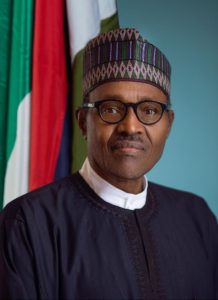Navigating Nigeria's Food Crisis: A Government's Balancing Act
August 5, 2024, 10:22 pm
The sun sets on Nigeria's agricultural landscape, casting long shadows over a nation grappling with soaring food prices and social unrest. The government, led by Minister of Agriculture and Food Security Abubakar Kyari, is at a crossroads. With import duties on food items set to expire by November, the clock is ticking. The promise of a bountiful harvest looms, but the present reality is stark. Food inflation has surged, leaving many citizens in a precarious position.
Kyari's recent announcements reveal a strategy that feels like a tightrope walk. The suspension of import duties on essential food items is a temporary lifeline. It aims to alleviate the burden of rising prices during the lean farming season. The minister's words echo a sense of urgency. He emphasizes that this importation is not a permanent solution but a necessary response to a cyclical agricultural crisis. The lean season, stretching from June to August, has left farmers with dwindling yields. The government’s intervention is a band-aid on a festering wound.
The statistics paint a grim picture. Food inflation has skyrocketed, with reports indicating a staggering 40.87% increase year-on-year. The National Bureau of Statistics has confirmed what many Nigerians already know: the cost of living is unbearable. The price of staple foods like rice, maize, and wheat has become a flashpoint for social unrest. Protests have erupted, with young Nigerians taking to the streets, demanding action against what they perceive as a government failure. The protests, dubbed the EndBadGovernance or Hunger Protest, have resulted in violence and chaos, underscoring the desperation felt by many.
In response to this turmoil, the government has introduced measures to distribute rice at a subsidized price. Civil servants will be the first to benefit, with 50kg bags of rice available for N40,000. This initiative aims to ensure that those in public service receive priority access. The rationale is clear: a controlled distribution system will prevent the mismanagement that plagued previous food interventions. However, the question remains—will this be enough to quell the rising tide of discontent?
Kyari's approach is rooted in data and accountability. By utilizing a system that tracks purchases through the National Identification Number (NIN), the government hopes to maintain transparency. This is a step in the right direction, but it feels like a drop in the ocean. The scale of the crisis demands more than just a temporary fix. It requires a comprehensive strategy that addresses the root causes of food insecurity.
The looming harvest offers a glimmer of hope. Kyari has expressed optimism about a substantial yield expected in October or November. This anticipated bounty could bring relief to beleaguered consumers. However, the reliance on a single harvest to stabilize prices is a precarious gamble. Agriculture is inherently unpredictable, and the specter of poor weather or pest infestations could derail these plans.
The government’s efforts to combat food inflation have included releasing grains from reserves and providing fertilizers to farmers. Yet, these measures have yet to yield significant results. The market remains volatile, and the specter of hunger looms large. As the government grapples with these challenges, the need for a multifaceted approach becomes increasingly clear.
Investment in agriculture is crucial. Nigeria must shift its focus from short-term fixes to long-term solutions. This includes improving infrastructure, enhancing irrigation systems, and providing farmers with access to modern technology. By empowering local farmers, the government can build a more resilient agricultural sector. This, in turn, will reduce dependence on imports and stabilize food prices.
The social implications of the current crisis cannot be ignored. The protests reflect a deep-seated frustration with the status quo. Young Nigerians, often the most affected by economic instability, are demanding change. The government must listen. Dialogue is essential. Addressing the grievances of the populace is not just a political necessity; it is a moral imperative.
As the November deadline approaches, the government finds itself in a race against time. The suspension of import duties is a temporary measure, but the underlying issues require sustained attention. The anticipated harvest could provide a much-needed reprieve, but it is not a panacea. The government must act decisively to address the root causes of food insecurity.
In conclusion, Nigeria stands at a critical juncture. The path forward is fraught with challenges, but it is also filled with opportunities. By investing in agriculture, fostering dialogue, and prioritizing transparency, the government can navigate this crisis. The stakes are high, and the time for action is now. The people of Nigeria deserve a future where food security is not a distant dream but a tangible reality.
Kyari's recent announcements reveal a strategy that feels like a tightrope walk. The suspension of import duties on essential food items is a temporary lifeline. It aims to alleviate the burden of rising prices during the lean farming season. The minister's words echo a sense of urgency. He emphasizes that this importation is not a permanent solution but a necessary response to a cyclical agricultural crisis. The lean season, stretching from June to August, has left farmers with dwindling yields. The government’s intervention is a band-aid on a festering wound.
The statistics paint a grim picture. Food inflation has skyrocketed, with reports indicating a staggering 40.87% increase year-on-year. The National Bureau of Statistics has confirmed what many Nigerians already know: the cost of living is unbearable. The price of staple foods like rice, maize, and wheat has become a flashpoint for social unrest. Protests have erupted, with young Nigerians taking to the streets, demanding action against what they perceive as a government failure. The protests, dubbed the EndBadGovernance or Hunger Protest, have resulted in violence and chaos, underscoring the desperation felt by many.
In response to this turmoil, the government has introduced measures to distribute rice at a subsidized price. Civil servants will be the first to benefit, with 50kg bags of rice available for N40,000. This initiative aims to ensure that those in public service receive priority access. The rationale is clear: a controlled distribution system will prevent the mismanagement that plagued previous food interventions. However, the question remains—will this be enough to quell the rising tide of discontent?
Kyari's approach is rooted in data and accountability. By utilizing a system that tracks purchases through the National Identification Number (NIN), the government hopes to maintain transparency. This is a step in the right direction, but it feels like a drop in the ocean. The scale of the crisis demands more than just a temporary fix. It requires a comprehensive strategy that addresses the root causes of food insecurity.
The looming harvest offers a glimmer of hope. Kyari has expressed optimism about a substantial yield expected in October or November. This anticipated bounty could bring relief to beleaguered consumers. However, the reliance on a single harvest to stabilize prices is a precarious gamble. Agriculture is inherently unpredictable, and the specter of poor weather or pest infestations could derail these plans.
The government’s efforts to combat food inflation have included releasing grains from reserves and providing fertilizers to farmers. Yet, these measures have yet to yield significant results. The market remains volatile, and the specter of hunger looms large. As the government grapples with these challenges, the need for a multifaceted approach becomes increasingly clear.
Investment in agriculture is crucial. Nigeria must shift its focus from short-term fixes to long-term solutions. This includes improving infrastructure, enhancing irrigation systems, and providing farmers with access to modern technology. By empowering local farmers, the government can build a more resilient agricultural sector. This, in turn, will reduce dependence on imports and stabilize food prices.
The social implications of the current crisis cannot be ignored. The protests reflect a deep-seated frustration with the status quo. Young Nigerians, often the most affected by economic instability, are demanding change. The government must listen. Dialogue is essential. Addressing the grievances of the populace is not just a political necessity; it is a moral imperative.
As the November deadline approaches, the government finds itself in a race against time. The suspension of import duties is a temporary measure, but the underlying issues require sustained attention. The anticipated harvest could provide a much-needed reprieve, but it is not a panacea. The government must act decisively to address the root causes of food insecurity.
In conclusion, Nigeria stands at a critical juncture. The path forward is fraught with challenges, but it is also filled with opportunities. By investing in agriculture, fostering dialogue, and prioritizing transparency, the government can navigate this crisis. The stakes are high, and the time for action is now. The people of Nigeria deserve a future where food security is not a distant dream but a tangible reality.

